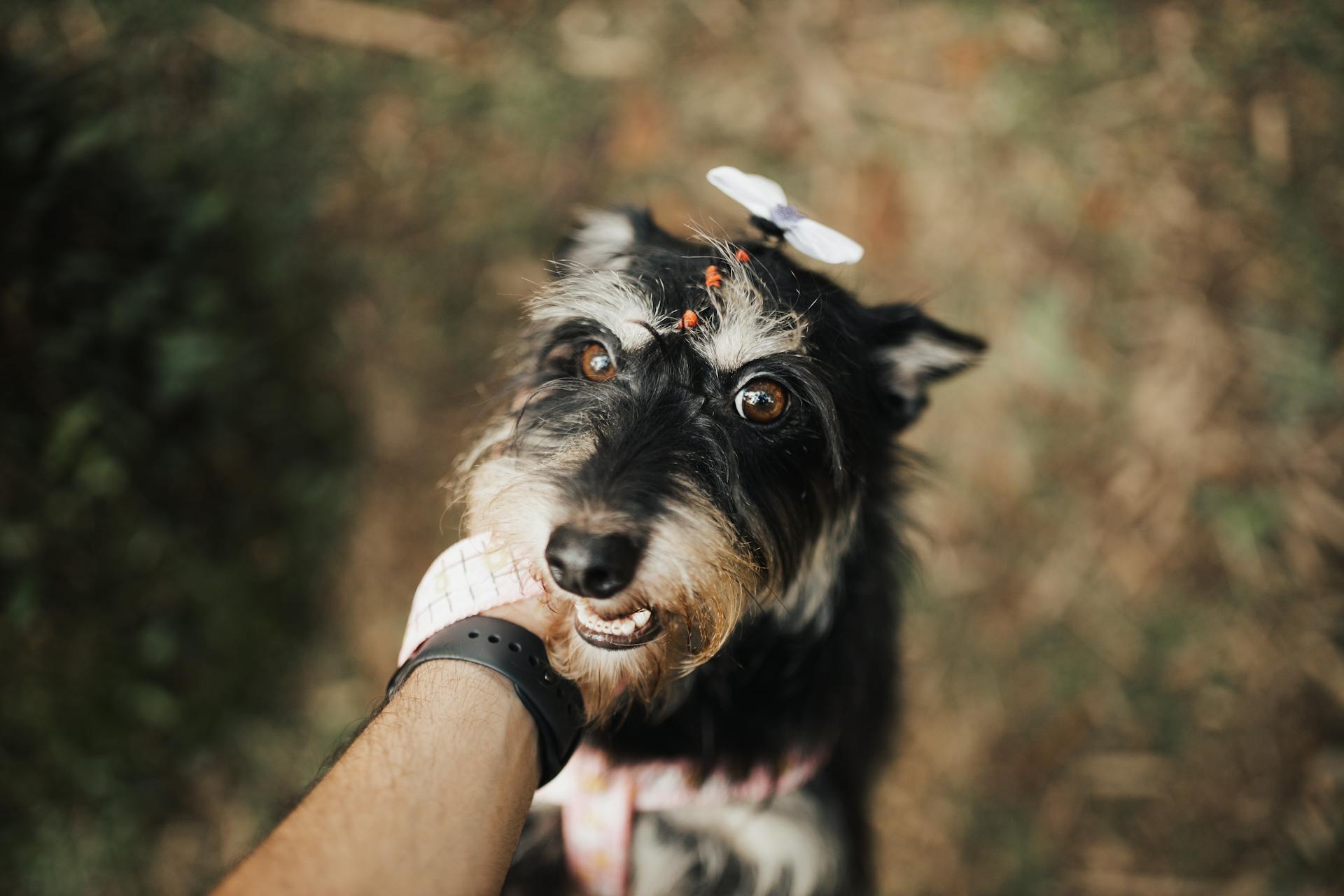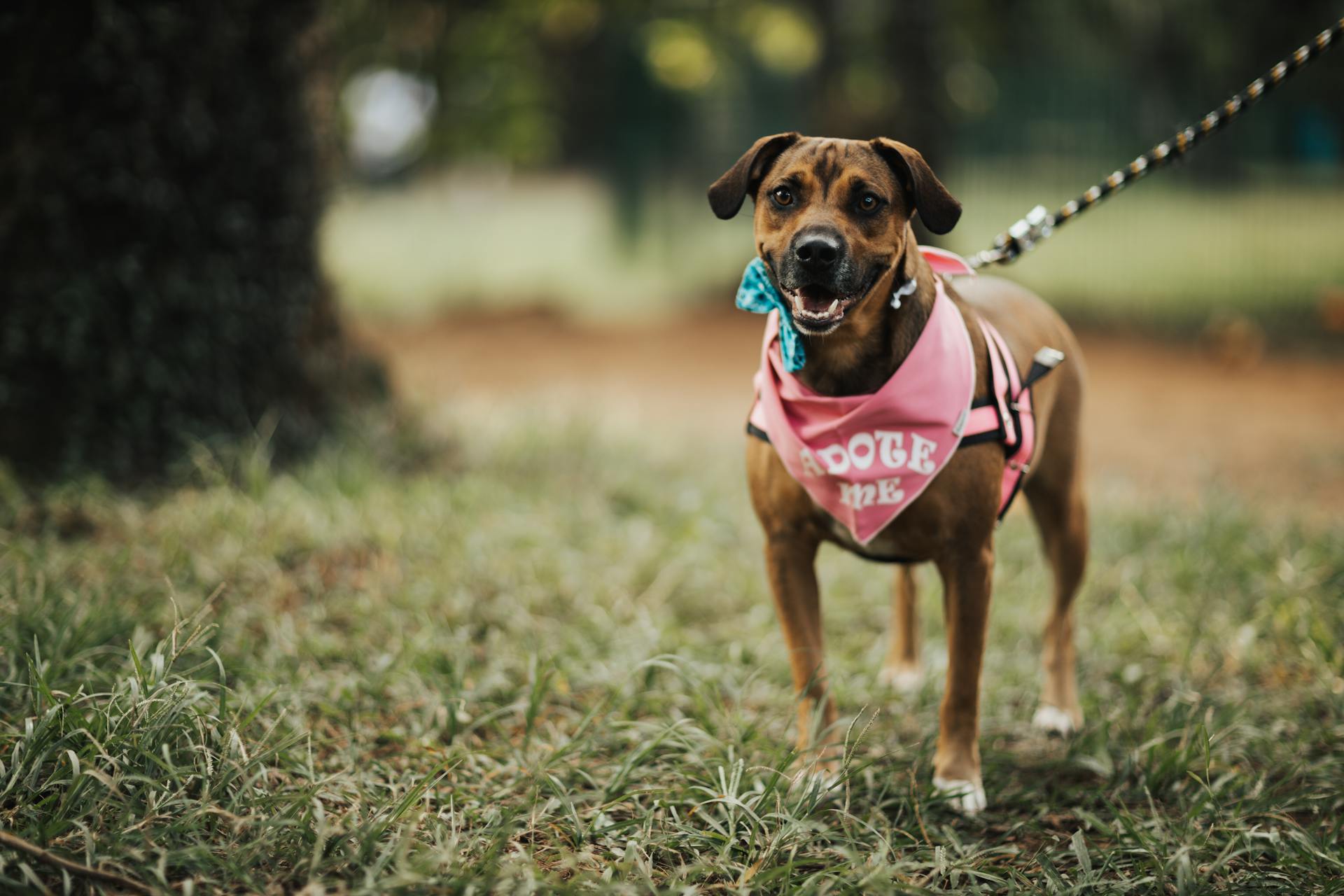
Most county and state fairs do not allow dogs on the premises, except for service dogs. This is because so many people bring their dogs to the fair that it becomes overcrowded and unsanitary. Disease can also spread more easily among the animals. If you do want to bring your dog to the fair, you should check with the specific fair's rules in advance.
Can I bring my dog into the fairgrounds?
Every year, thousands of people flock to fairgrounds across the country to enjoy the rides, the food, and the atmosphere. For many, the fair is a time-honored tradition. And for some, it's not the fair unless they can bring their dog along.
So, can you bring your dog into the fairgrounds? The answer is maybe. It depends on the fair and the rules they have in place. Some fairs do not allow dogs at all, while others have designated areas where dogs are allowed. And still other fairs allow dogs throughout the grounds, as long as they are on a leash.
If you're planning on bringing your dog to the fair, the best thing to do is to check with the fair's organizers ahead of time to find out their policy. That way, you can be sure that you and your furry friend will be able to enjoy the fair to the fullest.
What if my dog is not vaccinated?
If your dog is not vaccinated, there are a number of potential risks to both your dog and your family. Vaccinations help protect your dog from a number of contagious and potentially deadly diseases, including rabies, distemper, and hepatitis. If your dog contracts one of these diseases, they may suffer from a range of symptoms including fever, vomiting, diarrhea, and seizures. In some cases, these diseases can be fatal.
Rabies is particularly dangerous, as it is not only fatal to dogs but can also be transmitted to humans. If your dog contracts rabies, they will likely become aggressive and may attempt to bite or attack people or other animals. Even if your dog does not exhibit these symptoms, they can still transmit the disease to humans through saliva or other bodily fluids. If you or another member of your family is bitten by an unvaccinated dog, you will need to receive medical attention and may need to undergo a course of rabies vaccinations.
Not only is it important to vaccinate your dog to protect them from disease, but it is also important to do so to protect yourself and your family. Vaccinations are important for preventing the spread of disease, and by ensuring that your dog is vaccinated, you can help keep your family safe from potential exposure to dangerous illnesses.
Consider reading: What Are the Symptoms of a Dog with a Blockage?
What if my dog is aggressive?
There are a number of reasons why a dog may be aggressive, and it can be difficult to determine why your dog is behaving this way. If your dog is aggressive, it is important to seek professional help in order to determine the cause of the aggression and to develop a plan to address it.
Many dogs are aggressive due to fear or insecurity. They may have had a bad experience in the past, or they may be afraid of new people or new situations. Dogs that are aggressive due to fear or insecurity may display warning signs such as growling, lip-lifting, or showing their teeth. They may also try to escape from the situation or hide behind their owner. If your dog is displaying these signs of fear or insecurity, it is important to seek professional help in order to determine the cause of the fear and to address it.
Some dogs are aggressive due to dominance. They may display dominant behaviors such as growling, barking, lunging, or snapping. Dogs that are aggressive due to dominance often do not show any warning signs before they attack. If your dog is displaying these signs of dominance, it is important to seek professional help in order to determine the cause of the aggression and to develop a plan to address it.
Dogs may also be aggressive due to illness or pain. Dogs that are in pain may growl or snap at people who touch them. Dogs that are ill may also become aggressive. If your dog is showing signs of aggression and you cannot determine the cause, it is important to take them to the vet for a check-up.
It is important to remember that aggression is a normal canine behavior. Dogs use aggression to defend themselves or their pack, to assert their dominance, or to protect their territory. If your dog is displaying aggression, it is important to seek professional help in order to determine the cause of the aggression and to develop a plan to address it.
Worth a look: Aggressive Dogs
What if my dog barks excessively?
If your dog barking excessively, there are a few things you can do to help mitigate the issue. First, try to determine why your dog is barking. Is your dog barking for attention, out of excitement, or out of fear? Once you know why your dog is barking, you can start to work on resolving the issue. If your dog is barking for attention, provide positive reinforcement when he or she is quiet. This could include treats, petting, or verbal praise. If your dog is barking out of excitement, provide an outlet for that energy through exercise or play. A tired dog is a quiet dog. Finally, if your dog is barking out of fear, help your dog to feel more comfortable and secure. This could include providing a safe space, such as a crate, or working on behavioral training to help your dog feel more confident. If your dog is excessively barking, it is important to take action to resolve the issue. By determining the cause of the barking and taking appropriate steps, you can help your dog to feel more comfortable and reduce the amount of excessive barking.
Worth a look: Why Do Dogs Bring Their Food to the Carpet
What if my dog urinates or defecates on the fairgrounds?
If your dog urinates or defecates on the fairgrounds, you will need to clean it up immediately. You may be subject to a fine if you do not clean up after your dog.
What if my dog is not housebroken?
If you've never had a dog before, you might be wondering what to do if your new furry friend isn't housebroken. Housebreaking a dog takes time, patience, and lots of consistency. But don't worry - it's not as difficult as it may seem at first. With a little effort on your part, your dog will be using the bathroom outside in no time.
The first thing to keep in mind when housebreaking a dog is that they will have accidents. It's important to be patient and not punish your dog for these accidents. They are just learning, after all. The best way to avoid accidents is to keep a close eye on your dog and take them outside frequently.
Whenever you take your dog outside, make sure to provide plenty of supervision. Go with them to make sure they do their business in the right spot. If they start to go inside, quickly redirect them to the appropriate area.
Over time, you can start giving your dog more freedom to roam around outside. But be sure to keep an eye on them - you don't want any accidents in the house!
The most important thing to remember when housebreaking your dog is to be consistent. Every time they have an accident in the house, it sets back their progress. So make sure you are taking them out frequently and supervising them closely when they are outside. With time and patience, your dog will be housebroken in no time.
Related reading: How Soon Can Male Dogs Breed
What if my dog is a service animal?
Assuming you are asking about service animals in general and not specifically certified Service Dogs:
The public has become more and more aware of Service Animals in recent years, especially as more and more people have begun to use them. There are many different types of Service Animals, but the most common type is the Service Dog. Service Dogs are specially trained to perform tasks that their disabled handlers cannot perform for themselves. These tasks can be anything from picking up dropped items to providing balance and mobility assistance.
There are many different laws that protect the rights of people with Service Animals, but there are also many myths and misconceptions about them. One of the most common myths is that all Service Animals are protected by the Americans with Disabilities Act (ADA). This is not true! The ADA only protects Service Dogs that are specifically trained to perform tasks for their handlers with a disability.
Another common myth is that all Service Animals are allowed everywhere their handlers go. This is also not true! There are many places where Service Animals are not allowed, even if they are trained to perform tasks for their handlers. For example, Service Animals are not allowed in places where food is prepared or served, as they could potentially contaminate the food.
If you are thinking about getting a Service Animal, it is important to do your research and make sure that you are getting a animal that is specifically trained to perform tasks for you and that you understand the rights and responsibilities that come with having a Service Animal.
Intriguing read: Service Dogs
What if I am a exhibitor with a dog?
Assuming you would like an essay discussing the pros and cons of being a exhibitor with a dog:
Exhibiting a dog can be a fun and rewarding experience. It can also be a lot of work. If you are considering becoming a exhibitor, there are a few things you should know.
The first thing to consider is whether or not you have the time to commit to exhibiting a dog. Dog shows can be time consuming, and you will need to be able to dedicate the necessary time to your dog in order to be successful. If you are not able to commit the necessary time, it is probably not worth your while to become a exhibitor.
Another thing to consider is the cost. Exhibiting a dog can be expensive, especially if you are exhibiting in multiple shows. You will need to factor in the cost of entry fees, travel, and lodging when you are planning your budget.
You will also need to be prepared to deal with some stress. Dog shows can be stressful for both you and your dog. It is important to be able to remain calm and relaxed, even when things are not going according to plan.
If you are prepared to deal with the time commitment, the cost, and the stress, then exhibiting a dog can be a great experience. It can be a lot of fun to watch your dog compete and you can meet a lot of great people along the way.
See what others are reading: What to Bring When You Board Your Dog?
Frequently Asked Questions
Is the Washington State Fair safe to go to?
Yes, the Washington State Fair is a safe and secure environment. We operate on a philosophy that promotes the positive experiences for our staff, vendors and guests.
Will there be bag searches at the Washington State Fair?
Yes, guests will be subject to bag searches and may also be subject to metal detector screening upon entering the Washington State Fair.
Is the Washington State Fair accessible to people with disabilities?
Yes, the Washington State Fair is fully accessible. All of the fairgrounds and event venues are fully ADA compliant and equipped with ramps, elevators, and Tactile Tour Maps to help guests with accessibility needs navigate the location.
What happens to illegal items at the Washington State Fair?
Illegal items, including drugs, will be turned over to the Puyallup Police Department. Entry constitutes consent for Washington State Fair to use any film, video, or likeness of bearer for any purpose whatsoever without payment to bearer.
What items are not allowed on the Wisconsin State Fair Grounds?
The Wisconsin State Fair Grounds prohibit items from the following categories: Outside food (unless for infants or specific dietary needs) Pets All weapons, toys, and explosives
Sources
- https://thepupcrawl.com/can-i-bring-my-dog-into-rei/
- https://nofly90.com/can-you-bring-your-dog-to-the-fair/
- https://www.iowastatefairgrounds.org/about-the-fairgrounds/frequently-asked-questions/
- https://montebellopetfair.com/bring-your-pet/
- https://www.tripadvisor.com/FAQ_Answers-g58693-d6224380-t6148459-Can_I_bring_my_very_well_behaved_pet_dog_to_the.html
- https://www.tripadvisor.com/FAQ_Answers-g59750-d4326059-t4183492-Can_you_bring_your_dog_into_the_7_Mile_Fair.html
- https://www.brilliantfamilydog.com/blog/tag/Should+you+take+your+dog+to+the+fair
- https://doggotips.net/maintenance-and-care/what-happens-if-your-dog-is-not-vaccinated/
- https://alamedacountyfair.com/safety-and-rules/
- https://www.thefair.com/general-info/guest-services/
- https://www.brilliantfamilydog.com/blog/why-cant-i-take-my-dog-to-the-fair
- https://lovefairs.com/faq/can-i-bring-my-dog-to-the-fair-2/
- https://www.gov.uk/bring-pet-to-great-britain
- https://www.tripadvisor.com.sg/FAQ_Answers-g32846-d156899-t2882903-Can_you_bring_your_dog.html
Featured Images: pexels.com


